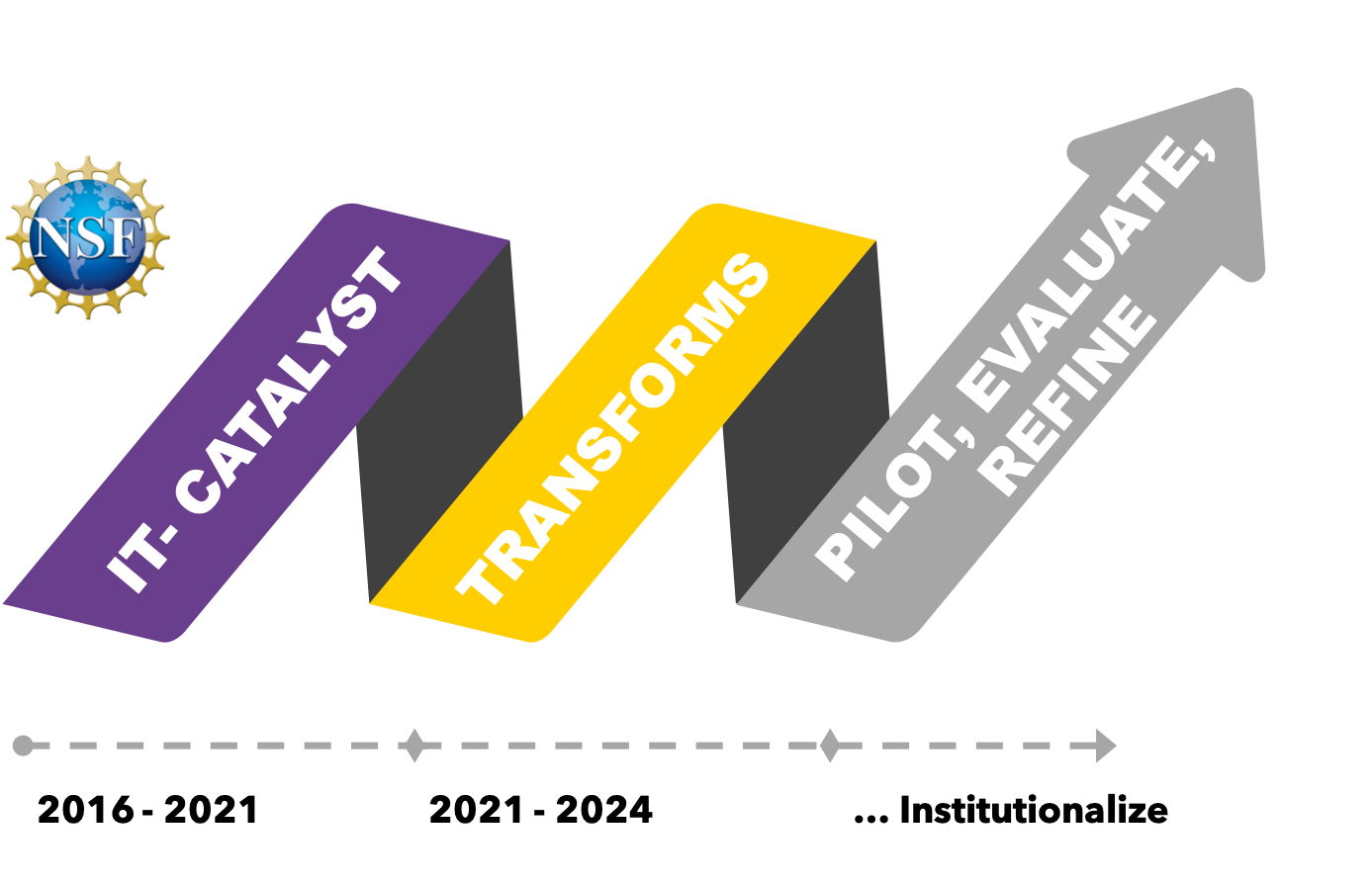
Post Institutional and organizational data publicly (EDUCAUSE)
Questions to consider:
Questions to consider:
Questions to consider:
References:
Carlson, E. R. (2022). Fundamental components of personalized coaching models for faculty: Addressing inequities in learning outcomes data. Journal of Assessment in Higher Education, 3(1), 1-20.
Erwin, B., & Thomsen, J. (2021, July). Addressing inequities in higher education: Policy guide. Education Commission of the States.
Parker-James, M. (2023). Leading change in the transition to flexwork beyond the Covid-19 pandemic. [Doctoral dissertation, Northeastern University].
Porter, S., Wang, J., & Dunn, S. (2023, April 19). Tackling systemic and structural inequities in higher ed IT: A Primer on beginnings. Educause Review.
Examples:
EDUCAUSE. (2023). CIO's commitment on diversity, equity, and inclusion.
University of Washington Information Technology. (2023, September 6). Pronoun data definition & integration.
Leadership must be ethical (Allen & Butler-Henderson, 2021):
Addressing the (im)balance of gender equality in academia through three complementary forms of ethics which underlie the ethical practice of an institution. These “ethics” are as follows.
Developed by Starratt (1994, 2003)

Graphic credit: (Branson, 2010)

Graphic credit: (San Francisco State University, 2023)
National Science Foundation-funded ADVANCE organizational change interventions that target (a) recruiting diverse applicants (e.g., training search committees), (b) mentoring, networking, and professional development (e.g., promoting women faculty networks); and (c) improving academic climate (e.g., educating male faculty on gender bias). (Casad et al., 2021)
References:
Allen, K. A., Butler-Henderson, K., Reupert, A., Longmuir, F., Finefter-Rosenbluh, I., Berger, E., Grove, C., Heffernan, A., Freeman, N., Kewalramani, S., Krebs, S., Dsouza, L., Mackie, G., Chapman, D., & Fleer, M. (2021). Work like a girl: Redressing gender inequity in academia through systemic solutions. Journal of University Teaching & Learning Practice, 18(3).
Branson, C. (2010, March). Ethical decision making: Is personal moral integrity the missing link? Journal of Authentic Leadership in Education, 1(1): 1-8.
Casad, B. J., Franks, J. E., Garasky, C. E., Kittleman, M. M., Roesler, A. C., Hall, D. Y., & Petzel, Z. W. (2021). Gender inequality in academia: Problems and solutions for women faculty in STEM. Journal of Neuroscience Research, 99(1), 13-23.
Gilligan, C. (1982). In a different voice: Psychological theory and women’s development. Cambridge, MA: Harvard University Press.
Noddings, N. (1984). Caring: A feminine approach to ethics and moral education. Los Angeles: University of California Press.
San Francisco State University. (2023). NSF advance. SF State Transforms.
Starratt, R.J. (1994). Building an ethical school: A practical response to the moral crisis in schools. London, England: The Falmer Press.
Starratt, R. J. (2003). Centering educational administration: Cultivating meaning, community, responsibility. L. Erlbaum Associates.
library@up.edu | 503.943.7111 or 800.841.8261 | 5000 N. Willamette Blvd., Portland, OR 97203-5798
Copyright © University of Portland, All Rights Reserved | Icons made by Freepik from www.flaticon.com